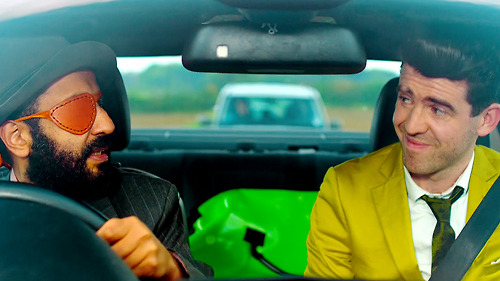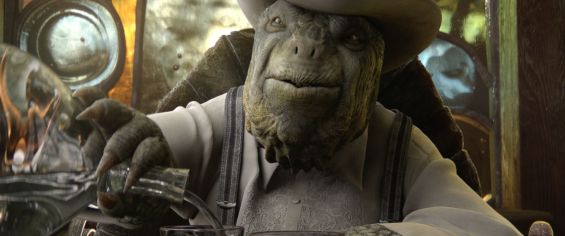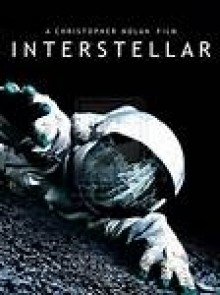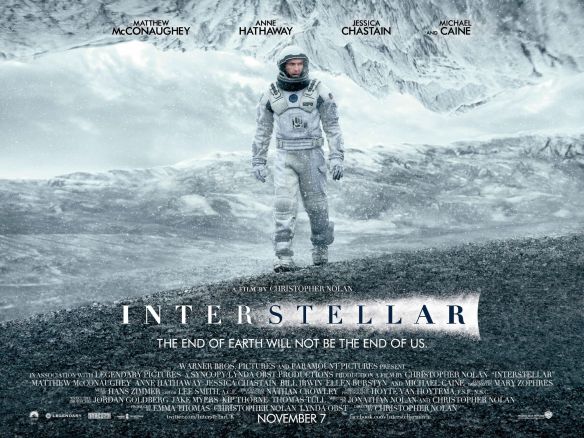In a world where millions live in fuel poverty, food prices are booming, and water is considered a commodity instead of a necessity, it can often prove hard to really face the big problem. Of course, those issues all seem big when they’re the ones you face immediately. And the supposed laws of supply and demand (they aren’t laws, they’re constructs) suggest the reason the things every human being requires to live in peace and dignity have become so expensive is scarcity. In a review originally posted on Hollywood Hegemony, Jack Brindelli explores how the ruling class thought can’t see the woods for the trees – and how, as Christopher Nolan’s latest effort shows, multi-million Hollywood has come to reflect that in recent years.
It’s the end of the world as we know it, and I feel fine…
For example, when you are malnourished, living below the bread-line, it’s easy to buy into the idea that the global population has begun to outstrip the demand for food for example. The 7 billion mouths to feed are more than the planet has ever had to produce for – no wonder people starve to death. But we already grow enough food to sustain 10 billion human lives! And without getting into whether or not corporations do indeed dump grain in the ocean to keep prices high; the food that should be enough to feed the world is priced in a manner that excludes millions of people for the sake of maintaining ‘healthy’ profit margins.
Water ‘scarcity’ meanwhile is already being used as a pre-emptive excuse by a number of establishment academics for a new wave of imperialism – as established nations eye up their neighbours resources, becoming desperate as the world ‘runs out’ of water. The world is not running out of water, in fact (except for the water that may have exited our atmosphere on our space expeditions) earth is a closed system. There is as much water as there has ever been. When an area becomes a desert, the water does not cease to exist – it simply manifests itself elsewhere. The problem is that human beings have built permanent residences where they expect water to be – and it is liable to move elsewhere.
Thanks to capitalist ideology, we are taught as a species that commodifying the necessities of life for profit is natural, that permanently based private property is natural, and that these systems of living have always been, and therefore always must be; if they crumble, so does every essence of our understanding of the world. In other words, we believe the world will end. So rather than adapt ourselves when we discover a problem in our ideological world, we come to assume there must be a problem with the physical world itself. Our only perceivable options then become to irrevocably change the world, or to leave it.
Enter, or rather exit, Interstellar – ‘box office auteur’ Christopher Nolan’s latest booming epic – telling the story of mankind’s final do-or-die adventure into the stars. A global crop blight has gradually made the earth uninhabitable, and decades before starvation begins wiping out life on the planet, NASA, headed by Professor John Brand (an unnervingly calculated Michael Caine) sends a final mission to find a new planet to live on. They select farmer and devoted father Cooper (Matthew McConaughey) to pilot their ship along with Brand’s daughter Amelia. It’s a story that is undoubtedly riddled with anti-matter plot holes – as is often the case with Nolan’s films, his vision is a little grander than his mainstream sensibilities allow – however, it’s told in an engaging and enjoyable way; and whilst it may drag a little in terms of duration, the performances of the stellar cast, not to mention Hans Zimmer’s surprisingly subtle (not to mention eerie) soundtrack are so on point that it is easy to forgive an extra 40 minutes of action.
There is not a lot else I can say here that wouldn’t be a massive spoiler – but in the end the mission becomes emblematic of a struggle for the soul of humanity. One strand of thought determines to abandon billions of people to die slow, horrific deaths on earth whilst restarting society from fertilised embryos in space; and the other attempts against all the odds to save those on earth by lifting them into space on a gigantic space station. The former predictably self-eulogise their “great sacrifice” of essentially murdering billions of people in order to preserve the species (and coincidentally themselves in the process) – in a way distastefully reminiscent of the smarmy “tough decision” rhetoric of austerity cut politics and its perpetrators.

Wilson Wilson considers his ‘sacrifice’ of killing millions of other people in Utopia…
They are very like the infamous Network of Channel 4’s acclaimed yet unfundable seriesUtopia – who personify the reactionary conservative belief that preserving the hellish and unfair system that they perceive as “the world” justifies the genocide of billions. That contrasts nicely against the dreamy blue-sky “we can do better than this” way of looking at the situation personified by Cooper and his cohorts – and certainly if Nolan is using sci-fi to comment on matters very much grounded on terra-firma then he succeeds with aplomb. If we extract the message from its apocalyptic context, it becomes a warning against small-mindedly accepting all manner of horrors to preserve a non-essential system of living, rather than adapting as a species to achieve above and beyond what anyone ever dreamed was possible.
However, as it is, Interstellar, like those that came before it (such as James Cameron’sAvatar, where humans seek to plunder other planets resources to supply their imperialist ambitions and Danny Boyle’s Sunshine, where the sun itself ceases to meet earth’s energy demands) is problematically lodged firmly within a dialogue that accepts scarcity as natural. Rather than debating whether the distribution of the untold wealth society possesses is flawed, it accepts that there is nothing to distribute, and becomes a discussion on how we deal with that. Should destruction cause us to live cautiously, or drive us on to better ourselves? But what if the destruction itself was a construct of our own making? What if we changed the way society was run to adapt to that, to stamp it out?
There are some great examples of this in recent cinema, notably Neill Blomkamp’s hard-hitting sci-fi class-war Elysium, where the District 9 director examines scarcity in a world of abundance. The wealthy elite have access to resources that could feed, heal and maintain the whole of society – yet they are the only ones privileged enough to afford to access them. Also worthy of note is the 2011 left of field animation Rango, which, while it isn’t a sci-fi, allows Gore Verbinski to satirically examine the fiction of water scarcity – as his protagonist discovers how the wealthy mayor of a town of (disgusting looking) animals is privatising water in order to forcing his desert-dwelling constituents to sell him their land on the cheap.

“Control the water and you control everything.” The Mayor of Dirt in Rango knows there’s no shortage…
Interstellar is an interesting and engaging look at how to deal with a crisis – but in terms of rhetoric it gets caught in a debate between two versions of the status quo. It fails in its duty as a sci-fi (perhaps one of the most subversive genres in existence) to critique those in positions of power and privilege. It does not examine those who cause such crises, or indeed, who prop up systems that cause the conditions for a crisis to be imagined in place of inequality. That is the most important debate of all to address – what if there is no material crisis of resources – what if the problem is one of the supposedly ‘natural’ constructs we use to distribute them? We won’t find the answer to those questions written in the stars.
Jack Brindelli








